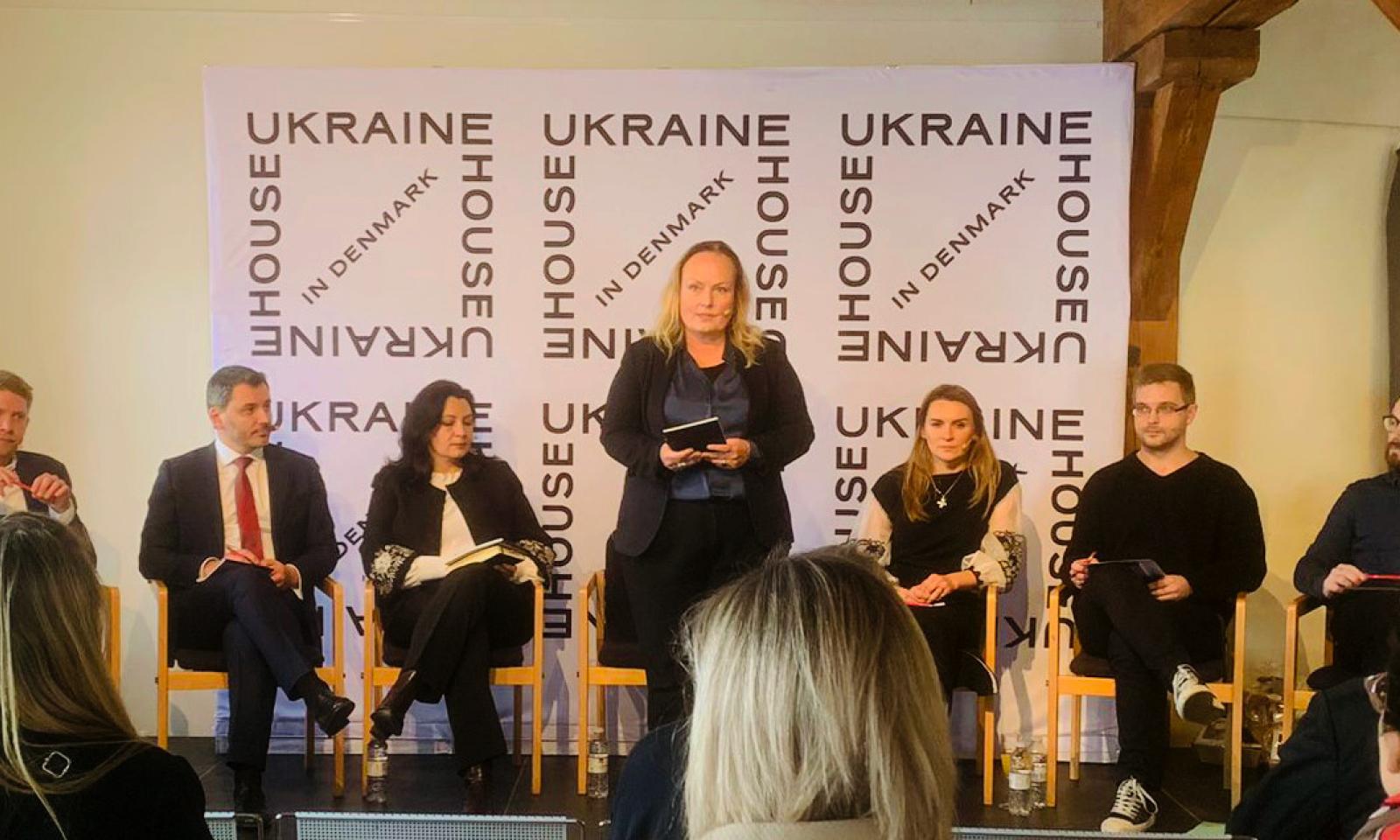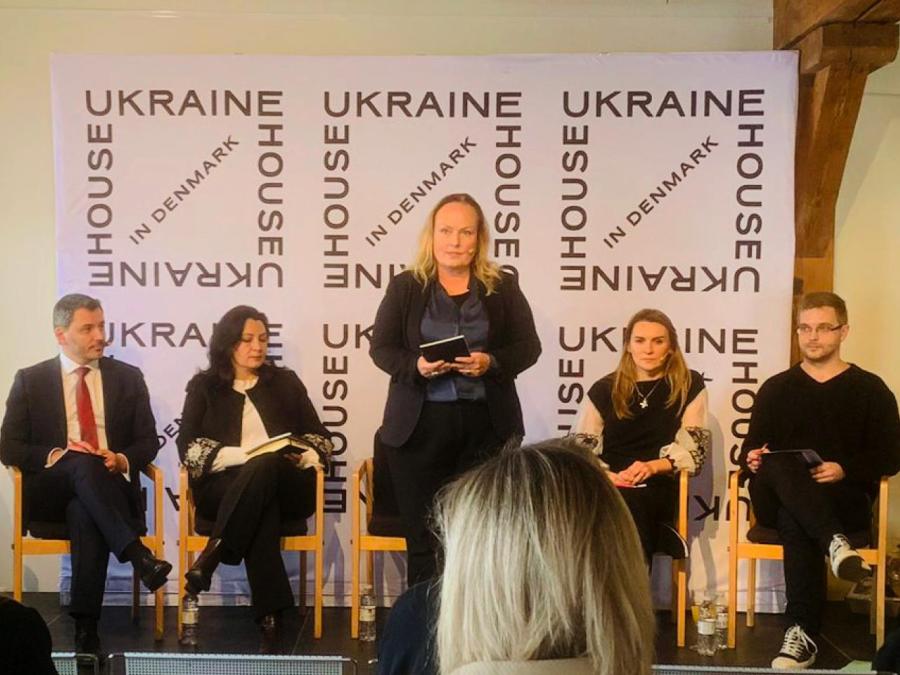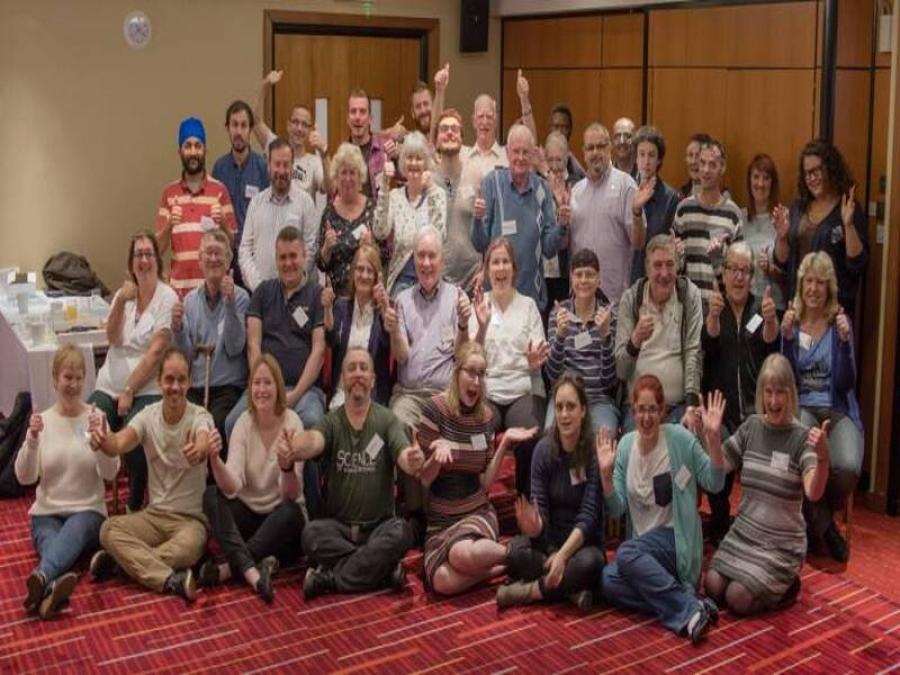Ukrainian and Danish MPs come together to share visions for a democratic future
Despite the pressure from the full-scale invasion, political representatives and MPs were able to come to Copenhagen and talk about what the future for a democratic Ukraine shall look like.
In the newly opened Ukraine House in Denmark, invited by DIPD, Ivanna Klympush-Tsintsadze (MP, European Solidarity), Solomiia Bobrovska (MP, independent), Yehor Cherniev (MP, Servant of the People), and Oleksandr Kyselov (member of Social Movement) joined a conversation with Alexander Ryle (MP, Liberal Alliance) and Kasper Sand Kjær (MP, The Social Democratic Party and Chairman of the Board, DIPD).
This led to an interesting discussion moderated by DIPD director Lisbeth Pilegaard, on hopes and dreams for a democratic Ukraine, how Ukraine should be rebuilt, and what underlying issues the country must deal with. Before, now and after the war.
How to build a new Ukraine?
Following the Revolution of Dignity in 2014, Ukraine’s democracy improved substantially while corruption decreased, and a strong civil society started to develop.
Obviously, the country still struggled to live up to democratic standards, but Ukraine was categorized as an electoral democracy at the outbreak of the war by the world recognized V-Dem Institute. However, the Russian invasion has put immense pressure on every aspect of the Ukrainian society and is causing a democratic backsliding.
Most of all the democratic progress the country achieved since 2014, has been lost following the outbreak of the war.
Ukraine before the war
Oleksandr Kyselov (Social Movement) pointed to the challenges with social inequality in Ukraine and highlighted some of the problems that the state was facing even before the war started.
At the discussion in Copenhagen, he focused specifically on the progressive deregulation of the labour rights protection and the ongoing struggles with political corruption, aggravated by the abuse of symbol politics. Kyselov emphasized that universal social protection, affordable housing, decent jobs, and collective representation are essential for developing a sustainable democracy in Ukraine. These issues were critical already before the full-scale invasion and have only grown in importance.
The three MPs agreed, but they presented more economically liberal solutions to the challenges. However, the Ukrainian panellists agreed that this disagreement is an important and necessary aspect of democracy. Ample space for disagreement is one of the features of democracy that the Ukrainians highlighted as something they wished to reach in the public discourse.
Ukraine as an independent state
The identity of Ukraine as a country was a recurring topic connected to the discussion about the future for the democracy. Especially the geopolitical role of Ukraine was a very important subject matter even before the war.
For Ivanna Klympush-Tsintsadze, from the liberal and pro-EU party European Solidarity, Ukraine needs to be rebuilt as an independent state: “When I think about what Ukraine is in the future, it is definitely free, and free not exclusively from Russia, but free from postcolonialism and the post-Soviet legacy”.
The message was clear: Ukraine shall be a sovereign state with the right to govern and develop itself. Klympush-Tsintsadze expressed hope despite the terrible position the state is currently suffering from.
Hope for democracy
Hope seemed to be a recurring anchor for the Ukrainian MPs and the representative from Social Movement. The politicians all agreed that this violent conflict symbolizes the protection of democratic values.
Yehor Cherniev, member of the government party Servant of the People, stated: “This is our choice – existential choice – between Russia and the west”. He continued: “These are the things we fight for in the battlefield: human rights and freedom of speech”.
The Danish members of parliament support this narrative. Danish MP, Kasper Sand Kjær stated that: “You fight on behalf of all of us. You fight for the right to be a free democratic country and for international law”.
The attack on democratic values in Ukraine adds to a bleak international picture. The latest report from the V-Dem Institute, demonstrates a global trend of autocratisation, with attacks on freedom of expression, on democratic elections, and greater censorship of critical media all over the world.
Partnership and collaboration
Support for democracy and democratic countries are essential to uphold free and thriving societies.
In the closing speech, Ukrainian Ambassador to Denmark, Mykhailo Vydoinyk underlined the importance of meetings like the one in Copenhagen. “Your support is extremely important. This is not only a powerful message that Denmark stands shoulder by shoulder with us in this war, but also your contribution to Ukrainian victory and our common peaceful European future.”
DIPD was grateful to see this discussion unfold, and we hope it will contribute to the support for a free and democratic Ukraine.
Original publication: https://dipd.dk/en/resources/ukrainian-and-danish-mps-come-together-to-share-visions-a-democratic-future







